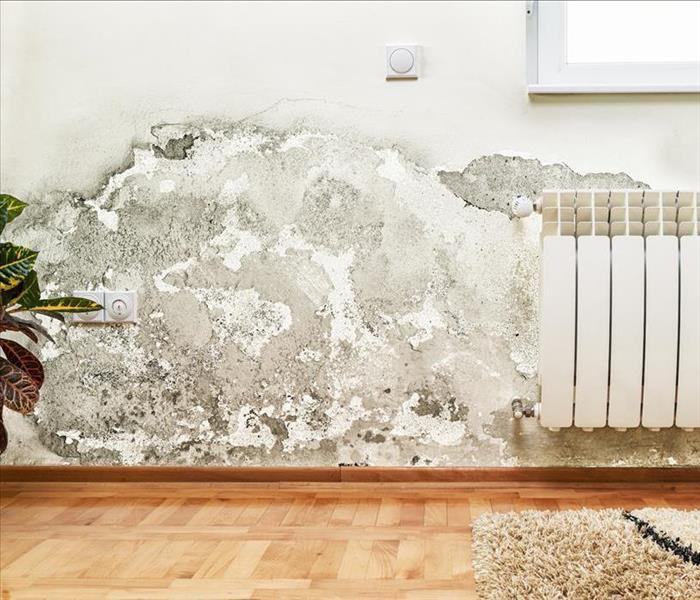Managing Mold
6/22/2017 (Permalink)
Managing Mold
In as little as 48 hours, mold can quickly become a problem in your home or business when there’s a water intrusion, like a roof leak or leaking water lines. Mold can cause health effects and can also cause significant damage to your property.
Although every mold damage scenario is different requiring a unique solution, the general mold remediation process stays the same. The following steps illustrate a “typical” mold removal process.
Inspection and Mold Damage Assessment
Your property will be carefully inspected for signs of mold using various technologies to detect mold and hidden water sources. Mold feeds on cellulose and water and can be hidden from plain view.
Mold Containment
Various containment procedures will be placed to prevent the spread of mold, like negative air chambers to isolate the contaminated area with physical barriers and negative air pressure to keep the mold spores from spreading during the cleanup process.
Air Filtration
Specialized filtration equipment captures microscopic mold spores out of the air. SERVPRO technicians utilize powerful “air scrubbers” and HEPA vacuums to prevent the spread of these mold spores while the mold remediation is in progress.
Removing Mold and Mold-Infested Materials
The mold remediation process depends on the amount of mold growth and the types of surfaces on which the mold appears. Antifungal and antimicrobial treatments will be used to eliminate mold colonies and help prevent new colonies from forming. Removing and deposing of mold-infested porous materials, like drywall and flooring, may be necessary to remediate heavy mold growth.
Cleaning Contents and Belongs
SERVPRO of Blount County Professionals clean your furniture, decorative items, curtains, and other restorable items affected by mold. They use a variety of cleaning techniques to clean and sanitize your belongings. They are also trained to remove odors and deodorization using fogging equipment.
Restoration
Depending on the level of mold damage, drywall, subfloors, and other building materials may be removed. Restoration may involve minor repairs, such as replacing drywall, painting, and installing new carpet; or it may entail major repairs such as the reconstruction of various areas or rooms in a home or business.






 24/7 Emergency Service
24/7 Emergency Service
